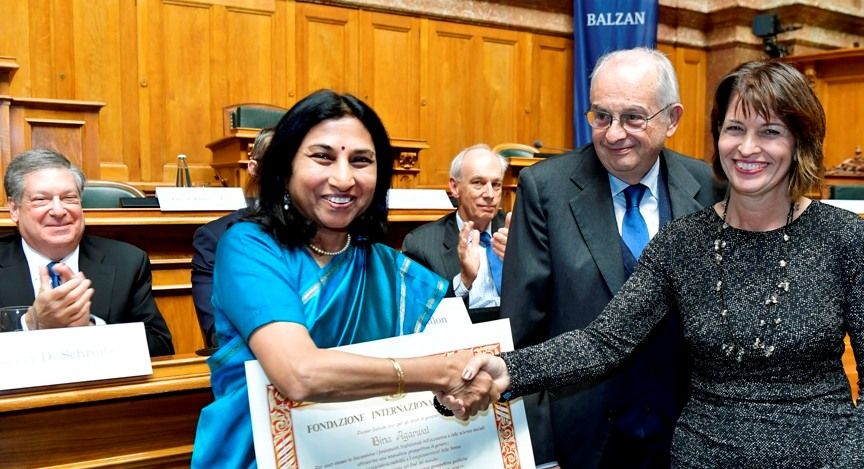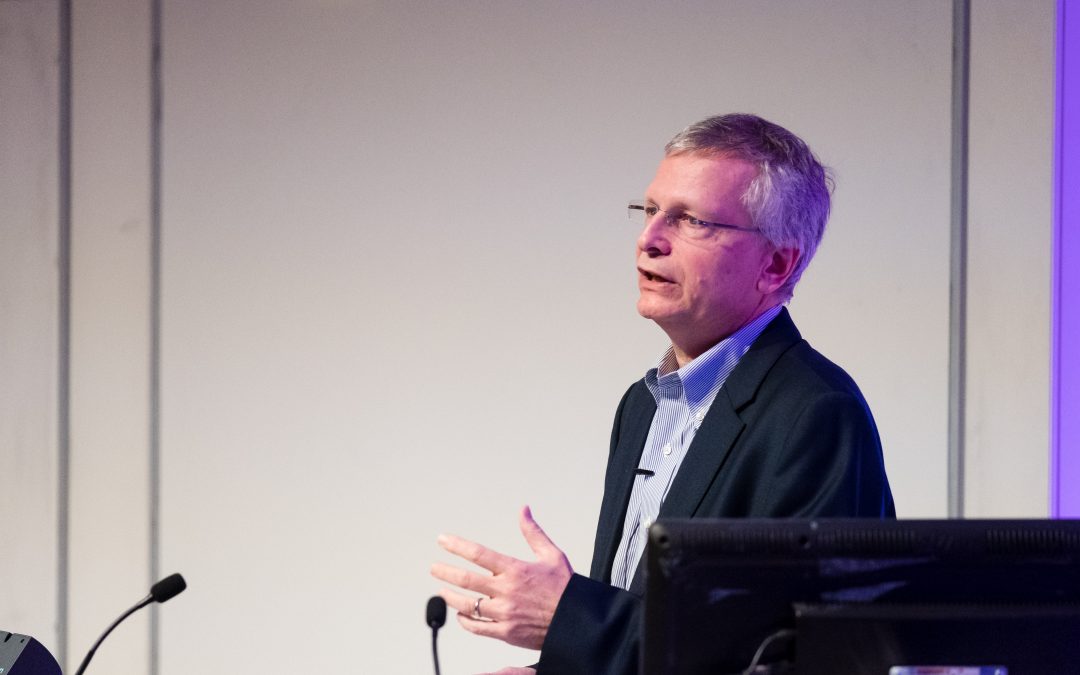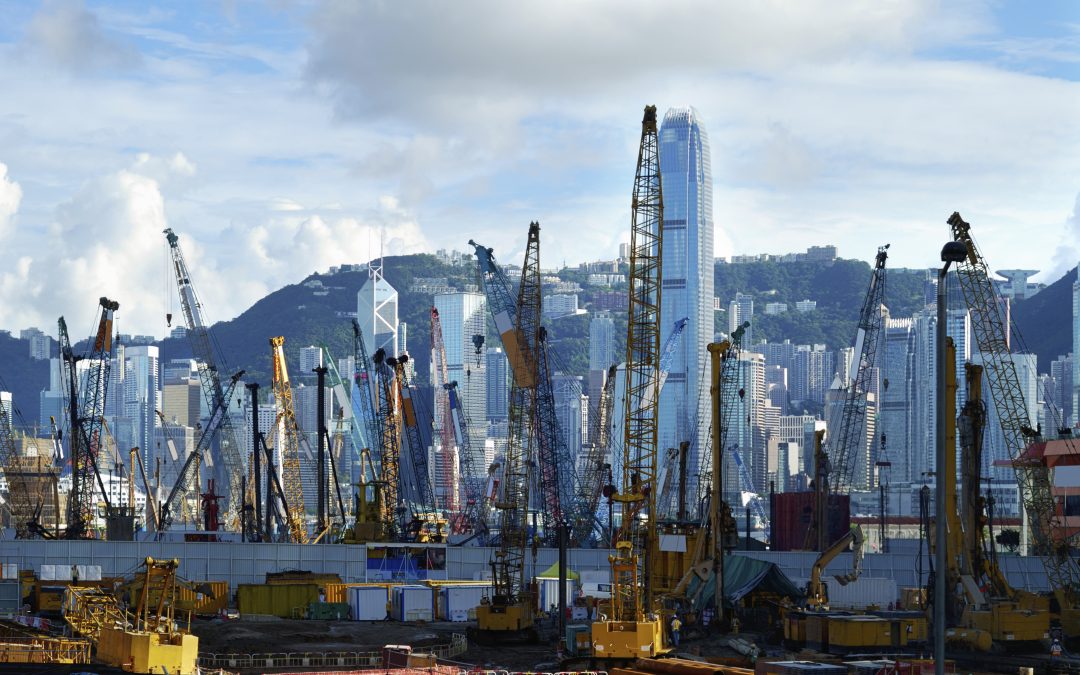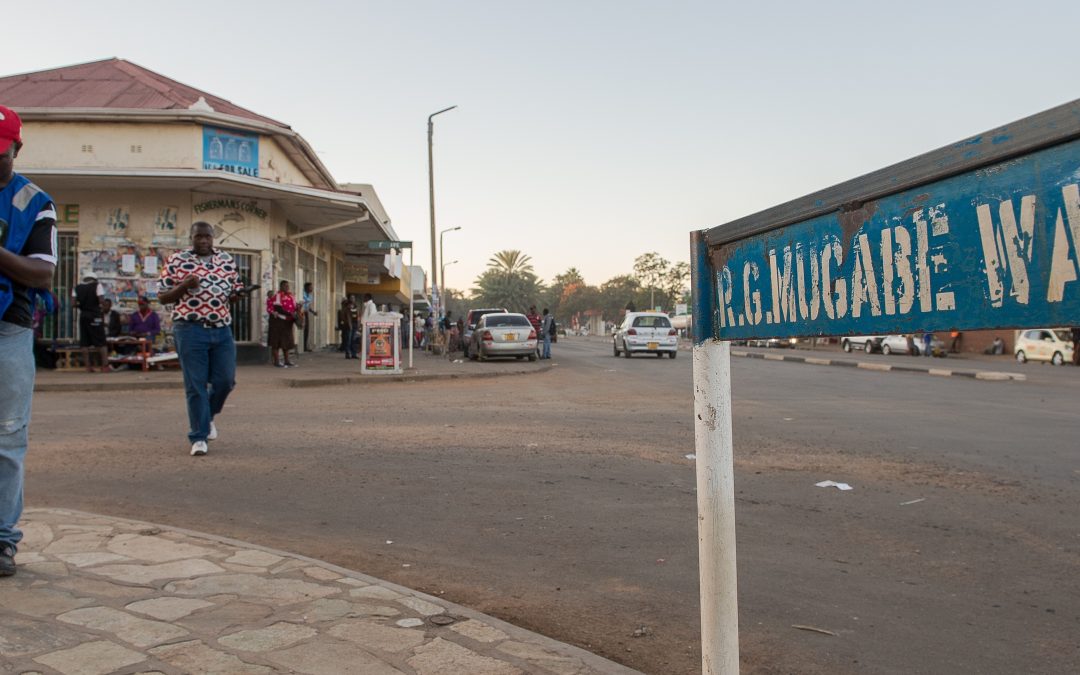Is the World on the Move?
This blog originally appeared on the Manchester Migration Lab website
Blog by Gabriele Restelli, PhD Candidate, HCRI, The University of Manchester
The title of the conference World on the Move made me think: Is the world on the move? Are we witnessing an era of unprecedented migration?
Indeed, in absolute terms, more individuals are moving; but that’s simply because the world population has increased to 7 billion. Global migration data show no evidence of discontinuity in overall international migration trends. The total number of people living outside their country of birth (migrant stock) has remained relatively stable as a percentage of the world’s population since 1960, ranging from 3.1% to 3.3% in 2015. Similarly, only 0.75% of the world’s population emigrated in 2014 (migrant flow) – just like in 1995. read more…

In Conversation: Prof Diana Mitlin, Jack Makau and Joseph Muturi
Prof Diana Mitlin spoke to Jack Makau (Director of Slum Dwellers International in Kenya) and Joseph Muturi (community leader, activist and Coordinator of the Kenyan Slum Dwellers Federation) when they were visiting Manchester to guest lecture on GDI’s innovative “Citizen Led Development” course. They discuss the challenges faced by slum dwellers, such as the lack of secure tenure rights, access to basic services and threat of violent evictions – and how community organising and activism is allowing people living in informal settlements to effect change and make their voices heard. Jack and Joe also talk about building partnerships with city and national government, collaborating with researchers to quantify the ‘poverty penalty’ in Mukuru, and not putting too much hope in politicians.
read more…

Progress on drinking water, sanitation and hygiene? Not for those with low-incomes
Prof Diana Mitlin, Managing Director, Global Development Institute
The United Nations has a specialist unit to measure and monitor progress on provision for water, sanitation and hygiene, the Joint Monitoring Programme (JMP). JMP’s regular progress reports are an essential stocktake that enables us to assess the achievement of Sustainable Development Goal (SDG) 6. Unfortunately they are often congratulatory rather than critical, leading to complacency rather than action. This is particularly true of the 2017 report and its discussion of affordability.
To recap, the Millennium Development Goal 7 called for halving (by 2015) the proportion of the population without sustainable access to safe drinking water and basic sanitation. It did not mention affordability. SDG 6 mandates the world to achieve universal and equitable access to safe and affordable drinking water, and access to adequate and equitable sanitation by 2030. Affordability is mentioned in the context of water, and implied for sanitation. But sadly, the goal’s indicators do not require measurement of the costs and access. In the context of extreme poverty and commodified basic services, consideration of affordability is critical. Adequate access without affordability is meaningless and risks making us believe that SDG 6 has been achieved when it has not.
Creative Methodologies… notes and musings from a fledgling researcher
This blog originally appeared on the Manchester Migration Lab website
By Thea Soltau, PhD Candidate HCRI, The University of Manchester
As a fledgling researcher, my attention is almost equally divided between my research interests and the research methodology itself. With a background in theatre, education and community arts I am particularly interested in the experiences of academics and practitioners who are employing creative methodologies to conduct their research. The intention of this blog is to reflect briefly on some of the challenges which were raised by the panel entitled ‘Creative Methodologies’ at the Migration Lab’s recent World on the Move conference. read more…

Is gender inequality still on the margins?
Professor Bina Agarwal was recently presented with a Balzan Prize for her work on gender and development.
She was cited for “challenging established premises in economics and the social sciences by using an innovative gender perspective; for enhancing the visibility and empowerment of rural women in the Global South; for opening new intellectual and political pathways in key areas of gender and development.”
Changing migratory configurations: the challenge of our time
This blog originally appeared on the Manchester Migration Lab website
By Professor Aderanti Adepoju, Founder/Coordinator, Network of Migration Research on Africa
In the twenty-first century, the world has come to a crossroads: economically, politically and demographically. In the process, a number of important events or phenomena have shaped the architecture of international migration. These are: globalisation, the economic-financial crisis, the emergence of new market economies, the huge remittance flows from North to South, and also from South to South, the so-called migration crisis of 2015, and the rise of the far right notion of zero immigration. The underlying long-term demographic dynamics of an ageing population in the North and a booming youthful population in most of the South underpin the upsurge of public discourse on international migration and concomitant policy-creation that have propelled migration from an unknown and unregarded realm to a place in the forefront of international political and economic relations. read more…

East Asia, the developmental state and globalisation

Structural change and premature deindustrialisation: lessons from Dani Rodrik
Alejandra Ortiz Garcia, PhD research Global Development Institute
Last month, Dani Rodrik, Professor of International Political Economy at Harvard University, paid a visit to Manchester to talk about his most recent work and share his views on the current state of affairs in the world. The Harvard professor had a busy few days at the Global Development Institute, delivering the GDI Annual Lecture, a Masterclass for PhD students, a workshop with our academics and was interviewed for the GDI Podcast. Dani Rodrik has been contributing to Project Syndicate for almost twenty years and has had his own blog for more than ten, so I am surprised he wasn’t also asked to write this blog!
The Ford Professor (and Twitter celebrity) touched on several topics that are worth discussing in depth: how globalisation gave rise to the welfare state and fuelled protectionism, how right and left wing politicians have taken advantage of ethnic and social class differences to promote populism, how economists seem to have contributed to tensions arising from globalisation even when economic theory predicted such tensions, and why the premature transition from manufacturing to services in a number of developing countries is likely to stunt their recent spells of economic growth.
Although these are all interesting subjects, I’ll focus on the last one, since it aligns with my research on economic growth and distributive issues in Mexico. read more…

The Rise of South-South Trade: Polycentric Patterns
Dr Rory Horner and Prof Khalid Nadvi, Global Development Institute
In a new, open access article published in Global Networks, we argue that Southern actors and Southern end markets have more prominent roles in global trade, requiring greater attention to the existence of multiple different value chains (VCs) serving different end markets – including domestic, regional and global. A growing portion of the global South’s trade is now beyond that of the global North, as a pattern of what we call “polycentric trade” has emerged.

Zimbabwe after Mugabe: three reasons for hope
By Dr Fortunate Machingura, Global Challenge Research Fund Postdoctoral Fellow at Global Development Institute
Robert Mugabe’s resignation, after what looks a lot like a military coup has ended the rule of one of the world’s most fearsome, fierce and long-serving leaders. What hope has this brought to the ordinary men and women of Zimbabwe?
I was born-free, well after Zimbabwe’s 1980 independence from British Colonial rule. I’m still quite young but much older than the 41% of the country’s population that isbelow the age of fifteen. I come from what was then Zimbabwe’s middle class, went to an all-girls missionary boarding school and a high school in the posh northern suburbs of Harare.
Like most young people in Zimbabwe, I imagined a fictionalised, embellished and sensationalised future for myself. Equipped with an excellent education, my dreams were larger than life, almost mystical.
What possibilities there were in the Jewel of Africa, Zimbabwe, the breadbasket of Africa, the centre of art and culture, trade and prosperity. But these dreams faded like popular myths and soon felt like colourful tales filled with excessive romanticism.
Although the Zimbabwean people themselves are little more than onlookers, the march by thousands who took to the streets to demand President Robert Mugabe’s resignation is a spectacle that would have been unthinkable just one week before the military’s intervention. It is reasonable to believe that the coup-like operation has widespread popularity among the population. Most Zimbabweans still carry vivid memories of the violence in the Chimurenga liberation war before 1980, and the widespread feeling this time around appears to be one of relief that a repeat performance has been avoided; that the ‘coup’ (so far) has been not just bloodless but peaceful.
Perhaps now, with Mugabe out, there are reasons to be hopeful once again. read more…
